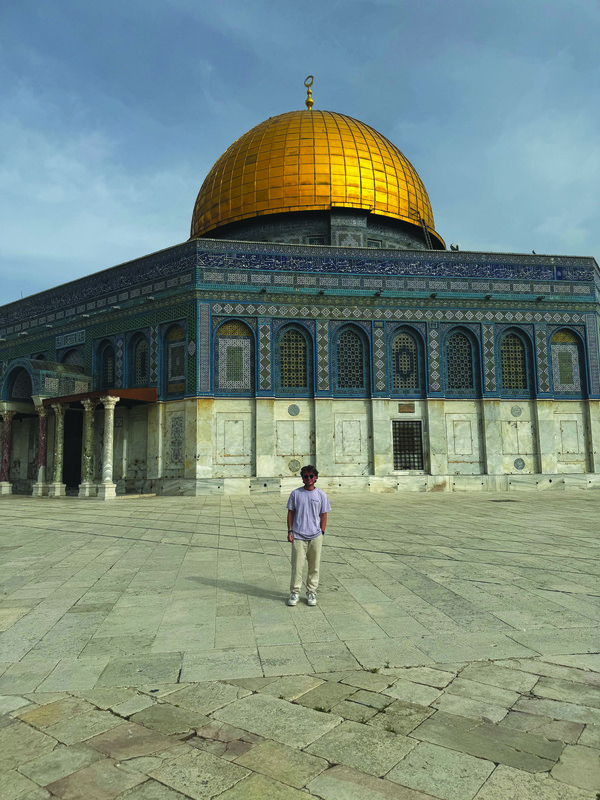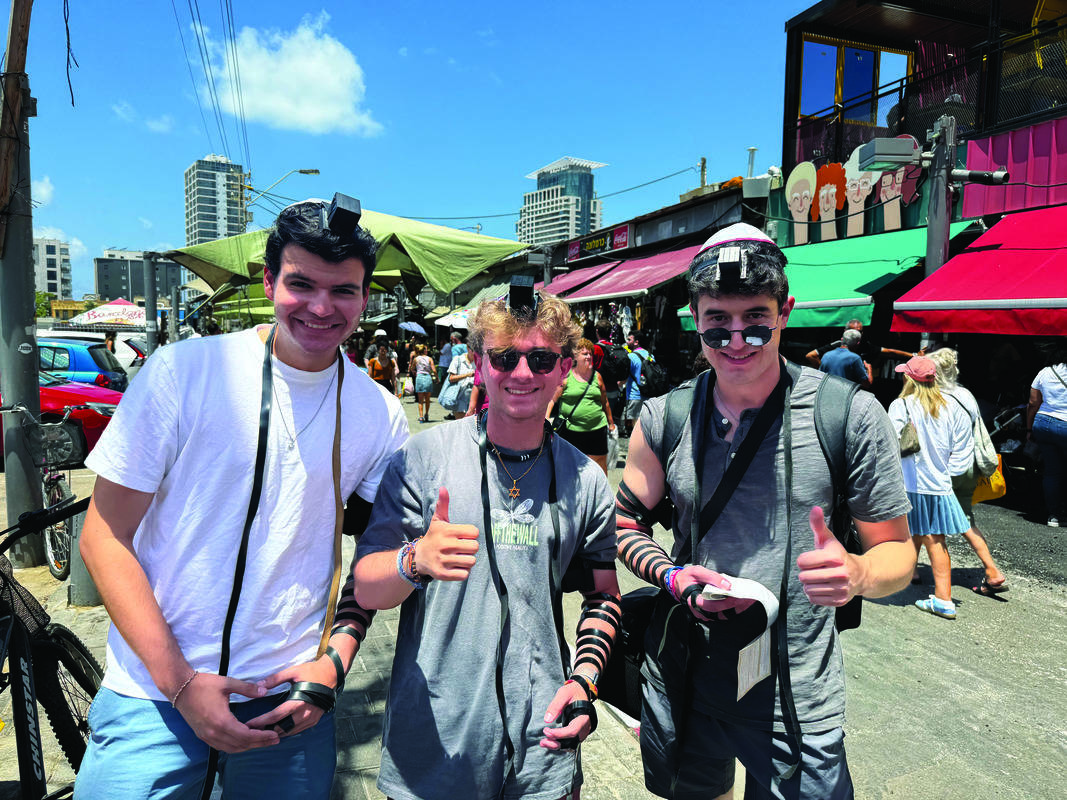FIRST PERSON: A VIEW FROM ISRAEL
I was in Israel for 10 days through a structured university trip called Israel Authentic (part of the Tlalim Group). Eight students on the trip were from Boston University and seven were from Virginia Tech, where I am a rising senior. We spent time in Jerusalem, near the Gaza border, in some border communities, in the north of Israel, and in Tel Aviv.
This was my second time in Israel; I had my bar mitzvah there in 2015. It was a lot different this time, as it is a country at war. It was much quieter. Although the streets were a lot less busy, it still felt like the safest place for me as a Jew. And I truly felt that everyone else there believed that, too.
I had the chance to speak to some incredible people during my time in Israel. This trip was created for us, student leaders, to go to Israel and understand what was happening and then to return to our universities to teach others about what we saw. Since it is vital that we understand perspectives from both sides, we met with the previous head of the IDF correspondence who took the news channels BBC and CNN through Hamas tunnels, a lead Palestinian journalist in the West Bank, and other Palestinian figures.
The day we went to Gaza border communities to speak with survivors from kibbutzim in the area had the greatest impact. We saw homes covered in bullet holes and shrapnel and homes where the roofs had been destroyed. The entire time we were in the area we heard helicopters and drones flying by, artillery going off, and saw smoke rising out of Gaza. We saw graffiti on each house. As the IDF cleared each building, they left markings of how many residents of each home died on October 7.
We also went to the site of the Nova music festival. We spoke to a survivor and saw a picture of everyone who died at the festival on October 7. Other than the artillery going off every couple of minutes, it was quiet.
We met with three people: an Israeli (a Jewish man who has lived in Israel for 45 years), an orthodox Christian, and a Palestinian Arab woman. Although they may not agree with each other on much, and neither did I, they all shared a common belief that peace is necessary. If they can sit in the same room and have a form of dialogue, why can’t we do the same on our college campuses and beyond?
We met with plenty of other incredible speakers, including IDF leaders, previous Israeli government officials, and more.
I am thankful to have gone to Israel during this time. Although I now feel like I know more than 90% of people in the United States about such a tough topic, in a way, I am even more confused and have so many more questions. I hope for the chance to go back soon and learn even more.


